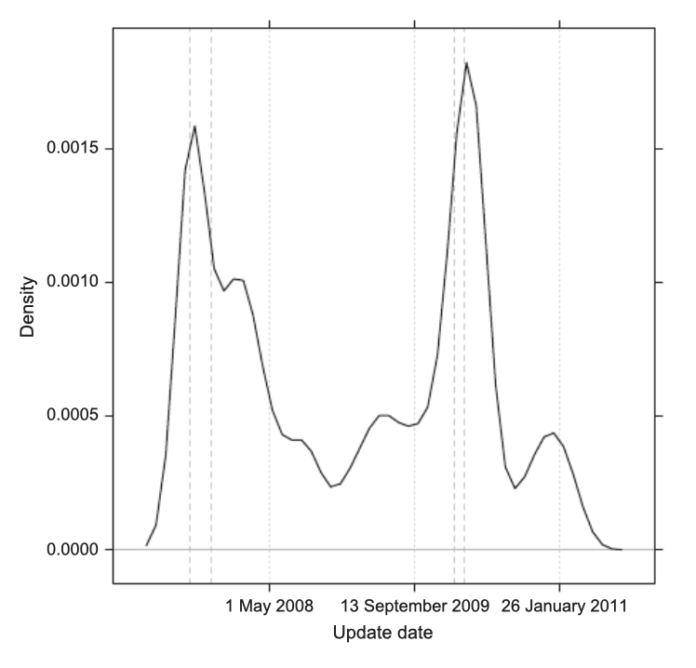The combination of growing demand for long-term care and higher expectations of care staff needs to be set in the context of long-standing concerns about the sustainability of recruitment and retention of front- line staff in the United Kingdom. Organisational and work environment factors are associated with vacancy levels and turnover rates. The aim of the current analysis was to investigate changes in turnover and vacancy rates over time experienced by a sample of social care employers in England. Taking a follow-up approach offers potentially more accurate estimates of changes in turnover and vacancy rates, and enables the identification of any different organisational characteristics which may be linked to reductions in these elements over time. The study constructed a panel of 2964 care providers (employers) using 18 separate data sets from the National Minimum Data Set for Social Care during 2008–2010. The findings indicate slight reductions in vacancy rates but the presence of enduring, high turnover rates among direct care workers over the study period. However, the experience of individual employers varied, with home-care providers experiencing significantly higher turnover rates than other parts of the sector. These findings raise questions around the quality and motivations of new recruits and methods of reducing specific vacancy levels. At a time of increased emphasis on care at home, it is worthwhile examining why care homes appear to have greater stability of staff and fewer vacancies than home-care agencies.
Hussein, S., Ismail, M. and Manthorpe, J. (2016) Changes in turnover and vacancy rates of care workers in England from 2008 to 2010: Panel analysis of national workforce data. Health & Social Care in the Community. 24(5): 547-556.




